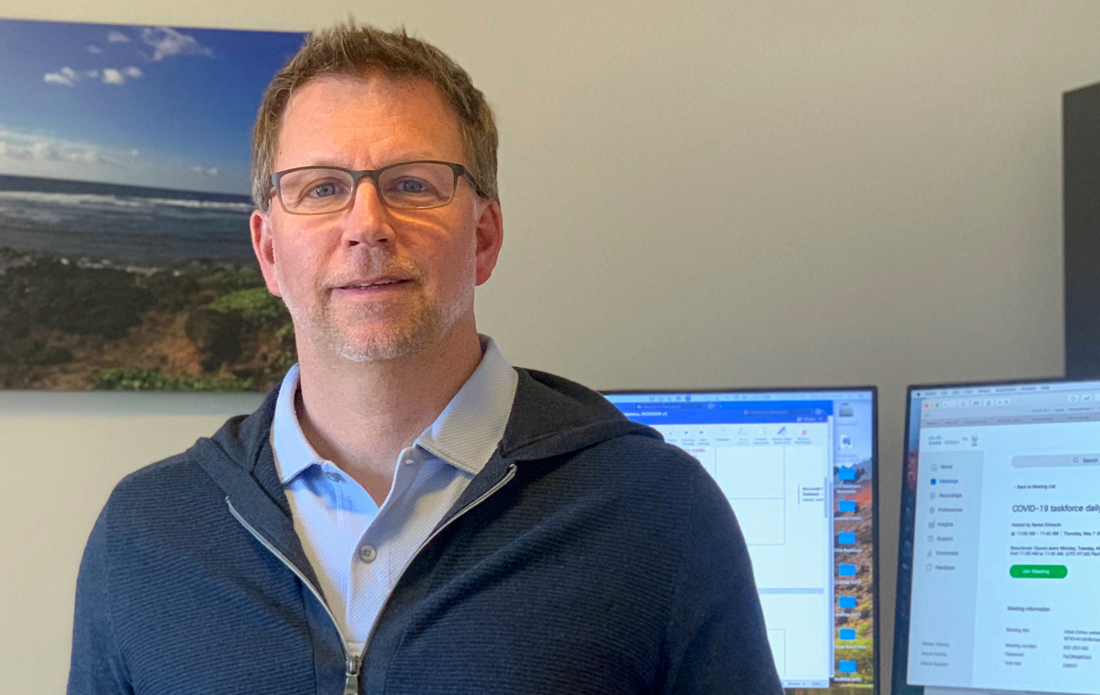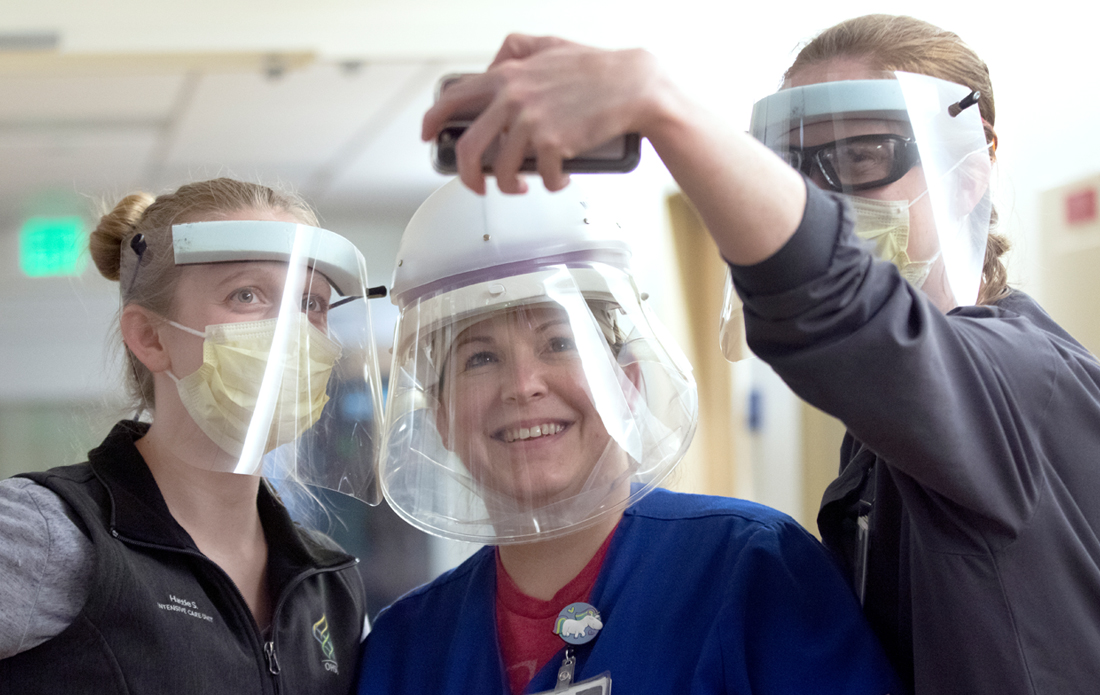One morning in early March, Mike McCaffrey woke up and watched a news story about nurses in a Washington hospital making face shields and masks out of office supplies and sheets. He was appalled.
“This can’t happen here,” he said.
As the associate vice president of logistics at OHSU, McCaffrey preemptively looked into options to ensure OHSU health care providers had the supplies required to do their jobs safely and successfully — a crucial role in the COVID-19 pandemic.
Lending a hand
This is an unprecedented time of supply and demand for personal protective equipment (PPE) such as face shields and N95 masks. Eighty percent of PPE is produced in China’s Wuhan district, one of the first areas impacted by COVID-19. This created a major disruption in the global supply chain, making crucial, lifesaving supplies extraordinarily difficult to obtain.
To McCaffrey’s team’s credit, they purchased extra PPE last fall, in preparation for the flu season, which helped put OHSU in a healthy position as COVID-19 hit the U.S.
But, back in March, McCaffrey began looking into other options to secure additional supplies for OHSU. This included plans such as working collaboratively with clinical leaders to implement new conservation measures, strategic “spot buys” of necessary items, and partnering with local organizations and corporations on addressing a potential shortage of PPE.
For example, Nike is developing and donating PPE to help support Oregon health care workers. On April 3, Nike delivered its first shipment of full-face shields and powered, air-purifying respirator, or PAPR, lenses to OHSU frontline workers.
These steps to mitigate a potential shortage left OHSU in good standing with PPE and other supplies. And OHSU’s strong relationships with their supply partners leave McCaffrey feeling confident in OHSU’s ability to provide ongoing replenishments.
“We aren’t out of the woods, but we are better off than many,” McCaffrey said.
As of May 1, Oregon hospitals were allowed to reopen for non-urgent procedures. In order to reopen, hospitals must follow a strict set of rules, including having a 30-day supply of protective gear available.
McCaffrey says OHSU has at least 60 days’ worth of the vast majority of the supplies needed — but reopening and maintaining safe health care isn’t going to be like turning on a light switch. We must be thoughtful about how we approach this, he explained.
Knowing what’s available is only part of the situation, though. He also works closely with clinical leaders to determine how to conserve materials and, if possible, re-use them.
Safely sterilizing
Normally, hospitals don’t keep loads of excess inventory around: It’s pricey, takes up space, and might expire before it gets used. An N95 mask is good for about five years, McCaffrey explained. After that, the fibers can break down and the mask becomes less effective.
Masks are sold as single-use items, although in an emergency or shortage, they might need to be reused. Yet masks can’t be sterilized using high heat like other medical devices. However, a recent collaboration with McCaffrey’s team and OHSU researchers has led to an emerging way to make N95 masks safe to use repeatedly should the need arise: vaporized hydrogen peroxide (VHP).
For years, VHP has been used to sterilize heat-sensitive equipment in a laboratory setting. The process involves filling a generator-like machine with hydrogen peroxide, which is then vaporized. VHP can permeate an entire N95 mask to kill viruses and bacteria, without damaging the mask itself.
“This was an incredibly collaborative effort by many folks across OHSU. We were able to reach out to research and other departments all around campus. Now we have this tool available on campus if we experience a crisis and run out of masks. It’s something I’m really proud of,” McCaffrey said.
Community support
McCaffrey and his team have been floored with how much support the OHSU community and the community as a whole has offered.
“Everyone, from OB-GYN to dental offices to friends of OHSU have offered testing kits, gloves, gowns, all to keep staff safe. The response has been tremendous,” he said. “And I can’t even begin to describe the number I’ve emails I’ve gotten from people who could sew masks.”
“It’s heartwarming to hear providers and leaders comment on how much they appreciate all the work we have done to ensure their safety.”
His team is constantly assessing what OHSU might need in the short- and long-term. And if their traditional suppliers can’t provide certain resources, then they find others who can.
For example, they’ve worked with a local distillery to manufacture hand sanitizer in the event OHSU runs low. They’re also working with Ford Motor Company to get additional face shields.
“Supply chain is often behind the curtain,” he said. “Not that its importance isn’t recognized normally, but COVID-19 has really pushed it to the front. We have a great team. It’s heartwarming to hear providers and leaders comment on how much they appreciate all the work we have done to ensure their safety.”
What drives him
Seeing that video of the nurses making homemade masks back in March fired him up for another, more personal reason: For McCaffrey, health care runs in the family. His sister is a physician’s assistant, his niece is a nurse, and his mother-in-law was a nurse for 40 years.
At OHSU he believes those around him are just as dedicated.
“They are here not because it’s a job, but because they want to be here. They want to help, and it shows in their work.”
He continued, “OHSU is a special place. How we all join together here and in the community gives me hope that we can get through this.”


